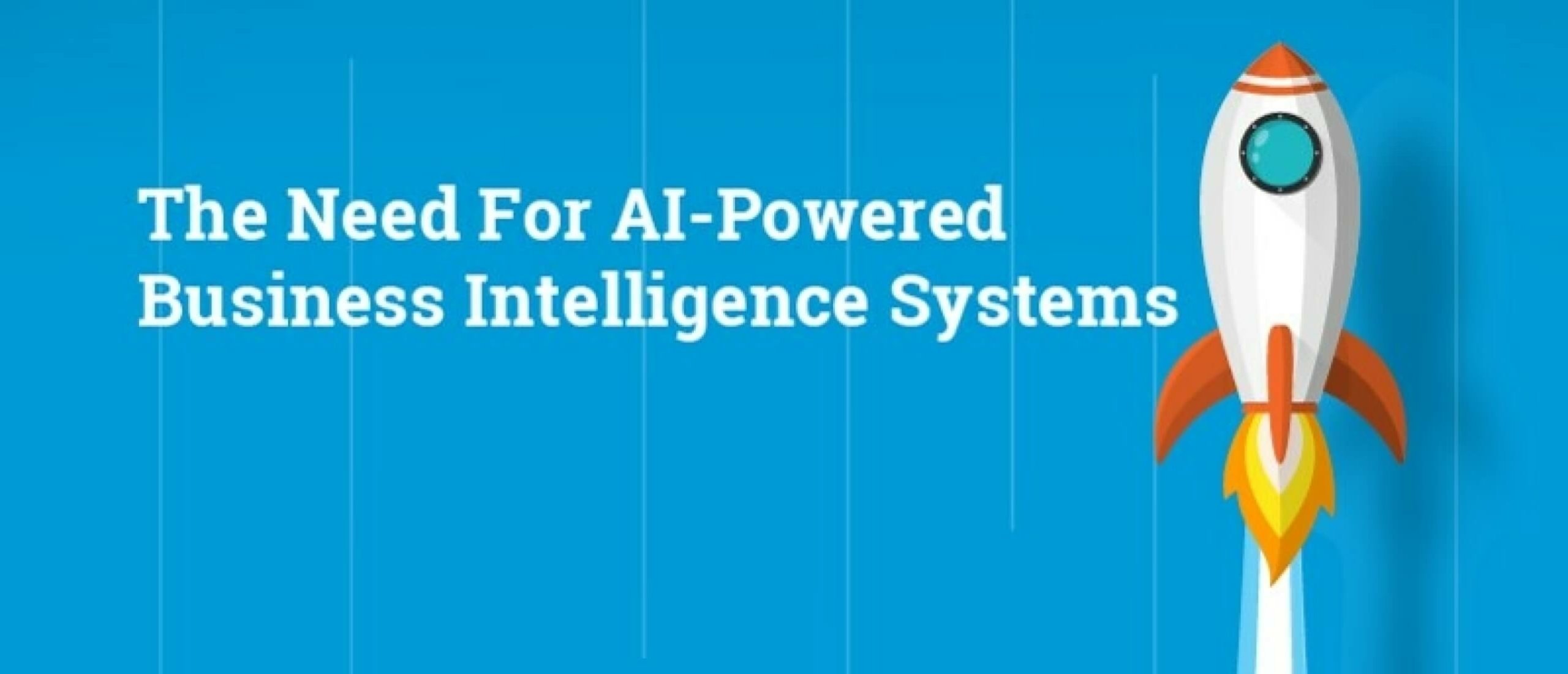Introduction
Definition of AI
Artificial Intelligence (AI) refers to the simulation of human intelligence in machines that are programmed to think and learn like humans. It involves the development of computer systems that can perform tasks that would typically require human intelligence, such as speech recognition, decision-making, problem-solving, and language translation. AI has the potential to revolutionize various industries, including business, by improving efficiency, productivity, and decision-making processes. However, there are ongoing debates about whether AI is ultimately good or bad for business, as it can both create new opportunities and challenges. While some argue that AI can lead to job displacement and ethical concerns, others believe that it can drive innovation, increase competitiveness, and enhance customer experiences. Ultimately, the impact of AI on businesses depends on how it is implemented and managed.
Importance of AI in business
AI has become increasingly important in business due to its ability to automate tasks, analyze large amounts of data, and provide valuable insights and predictions. With AI, businesses can streamline their operations, improve efficiency, and make data-driven decisions. AI also enables businesses to personalize customer experiences, enhance marketing strategies, and optimize resource allocation. In today's competitive business landscape, adopting AI has become essential for staying ahead and gaining a competitive edge.
Overview of the debate
The debate surrounding the impact of AI on business has been a topic of great interest and discussion. While some argue that AI has the potential to revolutionize industries and drive economic growth, others express concerns about job displacement and ethical implications. Proponents of AI highlight its ability to automate repetitive tasks, improve efficiency, and enable businesses to make data-driven decisions. On the other hand, critics worry about the loss of human jobs and the potential for bias and discrimination in AI algorithms. Despite the differing views, it is clear that AI is a powerful tool that has the potential to reshape the business landscape in both positive and negative ways.
Benefits of AI in Business

Increased efficiency and productivity
Increased efficiency and productivity are two major benefits that AI brings to businesses. By automating repetitive tasks and streamlining processes, AI technology allows companies to accomplish more in less time. This not only frees up employees to focus on more strategic and creative tasks but also leads to cost savings and improved customer satisfaction. With AI-powered tools and algorithms, businesses can analyze large amounts of data quickly and accurately, enabling them to make data-driven decisions and identify patterns and trends that may have otherwise been overlooked. Overall, AI has the potential to revolutionize the way businesses operate, leading to increased efficiency and productivity.
Improved decision-making
Improved decision-making is one of the key benefits of AI for businesses. With the ability to analyze vast amounts of data in real-time, AI systems can provide valuable insights and predictions to support decision-making processes. This enables businesses to make more informed and accurate decisions, leading to improved efficiency and effectiveness. AI can also help identify patterns and trends that may not be readily apparent to humans, allowing businesses to uncover hidden opportunities and mitigate risks. Overall, AI empowers businesses to make smarter decisions, ultimately driving growth and success.
Enhanced customer experience
Enhanced customer experience is one of the key benefits of AI for businesses. With AI-powered technologies, companies can personalize their interactions with customers, providing tailored recommendations, personalized offers, and efficient customer service. AI can analyze vast amounts of customer data, allowing businesses to understand their customers better and anticipate their needs. This leads to improved customer satisfaction and loyalty, ultimately driving business growth. By leveraging AI, businesses can deliver a seamless and personalized customer experience, setting themselves apart from their competitors.
Challenges of AI in Business

Data privacy and security concerns
Data privacy and security concerns are paramount when it comes to the use of AI in business. As AI systems rely on vast amounts of data to make accurate predictions and decisions, there is a risk of this data being compromised or misused. Businesses must ensure that they have robust security measures in place to protect sensitive customer information and prevent unauthorized access. Additionally, there is a growing concern about the ethical implications of AI, such as the potential for bias in algorithms or the invasion of privacy. It is crucial for businesses to address these concerns and prioritize the protection of data privacy and security to maintain trust and confidence in AI technologies.
Ethical considerations
Ethical considerations play a crucial role in determining whether AI is good or bad for business. As AI technologies continue to advance and become more integrated into various industries, concerns regarding privacy, bias, and job displacement have emerged. It is important for businesses to carefully consider the ethical implications of implementing AI systems, ensuring that they prioritize transparency, fairness, and accountability. Additionally, companies must establish clear guidelines and regulations to address potential ethical dilemmas and ensure that AI is used responsibly and in the best interest of all stakeholders.
Impact on employment
The impact of AI on employment is a topic of much debate. While some argue that AI will lead to job displacement and unemployment, others believe that it will create new job opportunities. The automation of certain tasks through AI can free up human workers to focus on more complex and creative tasks. Additionally, AI can enhance productivity and efficiency, leading to overall economic growth and the creation of new industries. However, there are concerns that AI may disproportionately affect certain industries and job roles, leading to income inequality and social challenges. It is crucial for businesses to carefully consider the potential impact of AI on employment and develop strategies to ensure a fair and inclusive transition to an AI-driven economy.
AI Adoption in Different Industries
Finance and banking
Finance and banking have been significantly impacted by the rise of AI in recent years. AI technologies have revolutionized the way financial institutions operate, enabling them to streamline processes, improve efficiency, and enhance decision-making. Machine learning algorithms are being used to analyze vast amounts of financial data, detect patterns, and make predictions, helping banks and financial firms to identify potential risks and opportunities. Additionally, AI-powered chatbots and virtual assistants are being employed to provide personalized customer service and support, enhancing the overall banking experience. However, the adoption of AI in finance and banking also raises concerns about data privacy and security. As AI systems become more advanced, it is crucial for businesses in this sector to strike a balance between leveraging AI's benefits and ensuring the protection of sensitive financial information.
Healthcare
Artificial Intelligence (AI) has the potential to revolutionize the healthcare industry. With its ability to analyze vast amounts of data and identify patterns, AI can assist in diagnosing diseases, predicting patient outcomes, and improving treatment plans. Additionally, AI-powered technologies such as chatbots and virtual assistants can enhance patient engagement and provide personalized healthcare experiences. However, there are concerns about the ethical implications of AI in healthcare, such as data privacy and security. It is crucial for businesses in the healthcare sector to carefully navigate the integration of AI to ensure that it benefits both patients and the industry as a whole.
Retail and e-commerce
Retail and e-commerce have been greatly impacted by the rise of artificial intelligence. With the ability to analyze large amounts of data and predict consumer behavior, AI has revolutionized the way businesses operate in this industry. From personalized recommendations to efficient inventory management, AI has enabled retailers to enhance customer experiences and optimize their operations. However, there are also concerns about job displacement and the ethical implications of AI in this sector. Despite the potential challenges, it is clear that AI has the potential to bring significant benefits to retail and e-commerce businesses.
Case Studies: AI Success Stories

Amazon's recommendation system
Amazon's recommendation system is a prime example of how AI can greatly benefit businesses. By analyzing customer data and behavior, the system is able to provide personalized product recommendations to users, increasing the likelihood of making a sale. This not only enhances the user experience but also boosts customer satisfaction and loyalty. With AI-powered recommendation systems, businesses like Amazon are able to improve conversion rates, drive revenue growth, and stay ahead of the competition in the ever-evolving digital landscape.
Google's self-driving cars
Google's self-driving cars have been a major topic of discussion in recent years. These innovative vehicles use artificial intelligence technology to navigate the roads and make decisions in real-time. While some argue that self-driving cars have the potential to revolutionize the transportation industry and improve road safety, others express concerns about the ethical implications and job displacement. Despite the ongoing debates, it is clear that Google's self-driving cars have sparked a new era of innovation and are reshaping the future of transportation.
IBM's Watson in healthcare
IBM's Watson has made significant advancements in the healthcare industry. With its ability to analyze vast amounts of medical data and provide accurate diagnoses, Watson has revolutionized patient care. By leveraging AI technology, Watson has helped doctors and researchers make more informed decisions, leading to improved treatment outcomes and better patient outcomes. The use of Watson in healthcare has also resulted in cost savings and increased efficiency, as it can quickly process and interpret complex medical information. Overall, IBM's Watson has proven to be a valuable tool in the healthcare sector, demonstrating the positive impact of AI on businesses.
Conclusion

Balancing the benefits and challenges
Artificial Intelligence (AI) has undoubtedly revolutionized the business landscape, offering a myriad of benefits to organizations. However, it is essential to acknowledge the challenges that come with implementing AI in business operations. Balancing the benefits and challenges of AI is crucial for organizations to maximize its potential while mitigating potential risks. By carefully considering the ethical implications, ensuring transparency, and investing in employee training, businesses can harness the power of AI to drive innovation, enhance productivity, and gain a competitive edge in the market.
The future of AI in business
The future of AI in business holds immense potential for growth and innovation. As companies continue to adopt AI technologies, they are able to automate repetitive tasks, improve operational efficiency, and make more informed decisions. AI has the ability to analyze vast amounts of data, identify patterns, and provide valuable insights that can drive business strategies. Additionally, AI-powered chatbots and virtual assistants are revolutionizing customer service by providing personalized and efficient support. However, as with any technological advancement, there are also concerns about the impact of AI on jobs and privacy. It is crucial for businesses to carefully navigate these challenges and ensure that AI is used ethically and responsibly. With the right approach, AI can be a powerful tool that enhances business performance and drives success in the future.
Final thoughts
In conclusion, the impact of AI on businesses is a complex and nuanced topic. While there are certainly concerns about job displacement and ethical considerations, AI also presents numerous opportunities for businesses to improve efficiency, enhance decision-making processes, and deliver personalized experiences to customers. Ultimately, whether AI is good or bad for business depends on how it is implemented and managed. It is crucial for businesses to carefully consider the potential benefits and risks, and to adopt a responsible approach to AI adoption and utilization. By doing so, businesses can harness the power of AI to drive growth and innovation while minimizing any negative consequences.





